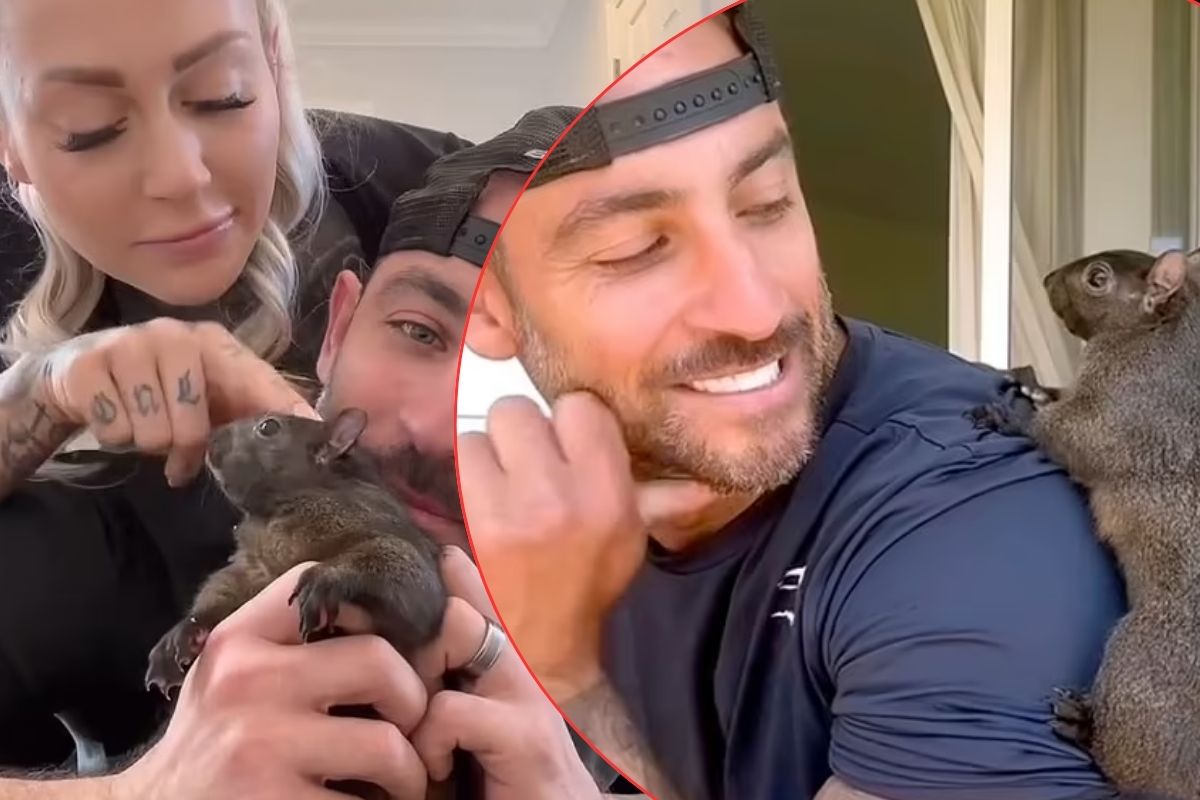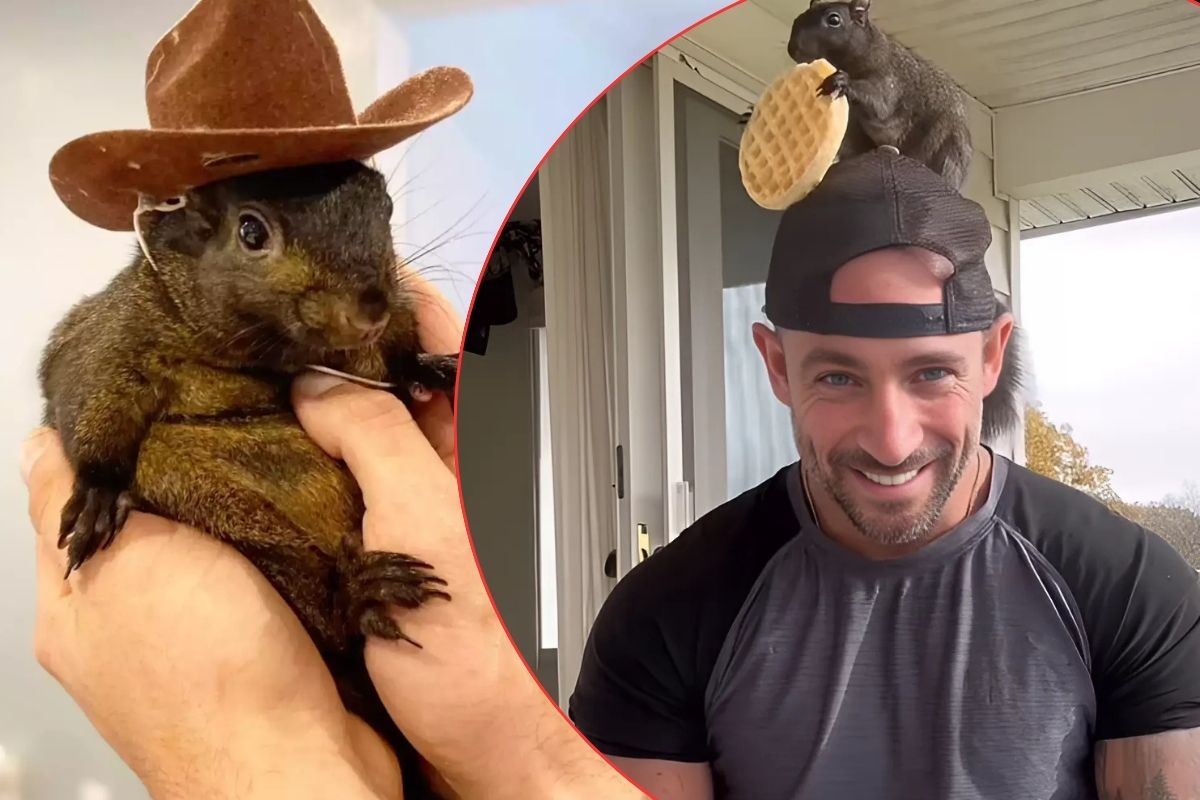In late 2024, a much-discussed event occurred between the New York State Department of Environmental Conservation (DEC), Mark Longo of Pine City, and two animals, Peanut the squirrel and Fred the raccoon, in his home. Since then, the operation, which had been led by DEC Investigator Joshua Crain, has driven widespread public outrage as the spotlight has been pushed on wildlife regulations, enforcement practices, and the treatment of animals collected from the wild. This article takes a closer look at the Joshua Crain Squirrel case, its implications for public policy, and the larger debate around wildlife law enforcement.
Background of the Case
Mark Longo and his wife maintained an informal animal sanctuary on their 350-acre property, taking care of several rescued animals. Peanut, a gray squirrel, had been in their care for seven years, orphaned as a baby when its mother was hit by a car. Fred the raccoon had only recently been rescued, only a couple of months before the incident. Both animals had become part of the safe and controlled Longo household.
Also read: Val Kilmer, Acclaimed Actor Known for ‘Top Gun’ and ‘Batman Forever,’ Dies at 65

The Raid and Seizure
Under the leadership of Investigator Joshua Crain, members of the DEC, approximately ten in total, executed a search warrant on the Longo residence on October 30, 2024. The arrest warrant, signed by Chemung County Judge Richard W. Rich Jr., cited suspicions of illegal possession of wildlife but did not refer to any immediate public health concerns, such as rabies. Joshua Crain squirrel Peanut allegedly bit one of the agents during the raid, and that incident was later used by the DEC as an excuse to kill Peanut and Fred for rabies testing. This has been criticized by many as dramatic and unneeded, as neither showed signs of illness.
Public Reaction and Outcry
The event sparked public outrage and criticism of the DEC’s treatment of the matter. DEC’s decision-making and the secrecy around the rabies testing generated public skepticism and distrust. Animal rights activists and concerned citizens have urged more scrutiny of the DEC’s enforcement practices, saying that the case is a clear example of overreach by the government. Much has been questioned about whether Crain and his team used due diligence before making the irrevocable decision to kill the animals.
Internal Investigation and Legal Proceedings
The DEC announced that it would launch an internal investigation into the policies and procedures that led to the raid and subsequent killing of Joshua Crain squirrel Peanut and Fred in response to public outcry. A spokesman for the agency said in a statement, “An internal investigation into the matter is ongoing, and we are reviewing internal policies and procedures to ensure we continue serving this core mission.” Mark Longo is now speaking out about his plans to go to court to take on the DEC over the legality and ethics of the raid. They gained media attention thereby sparking debates over how to balance wildlife conservation laws alongside individual rights to save and rehabilitate animals.
The Role of Joshua Crain
The lead investigator on the Joshua Crain squirrel case has faced criticism for his decision-making process. Critics say he should have used greater discretion in the situation, especially considering the animals didn’t pose an immediate threat to health. However, others are defending Crain’s actions, arguing that Crain was acting within the bounds of valid wildlife laws, which forbid private individuals from keeping wild animals as pets without proper permits. Regardless of the public opinion, the case has left Crain in the middle of a broader debate over ethics and legality in wildlife enforcement. Policy changes have been demanded with many advocating for clearer guidelines about when and how DEC officials should intervene with rescued wildlife.
Broader Implications
This incident illustrates the complexity and challenges of enforcing wildlife conservation in the United States. However, these laws need to be applied with compassion and common sense. Peanut and Fred’s case brings lots of questions about how enforcement agencies handle wildlife cases with people who take in and care for orphaned or injured animals. Given that the internal investigation is still underway, and the potential for legal action on multiple fronts, how this case plays out has the potential to influence wildlife rehabilitation policies and enforcement practices within conservation organizations for years to come. To uphold the integrity of wildlife law enforcement, we must respect the principle that wildlife laws need to be enforced in a humane, smart way that does not harm animals or other people that are in the vicinity.
Also read: Ashley St. Clair Accuses Elon Musk of Withdrawing Child Support Amid Paternity Dispute
Conclusion
Joshua Crain’s involvement in the controversial confiscation and euthanization of Joshua Crain squirrel Peanut, and Fred the raccoon has sparked a national debate over wildlife enforcement policies. Although he acted in accordance with the law, public reactions brought forth a desire for change in the way such cases should be treated. This case is likely to remain a landmark in the ongoing debate over where to draw the line between law enforcement and animal care.
